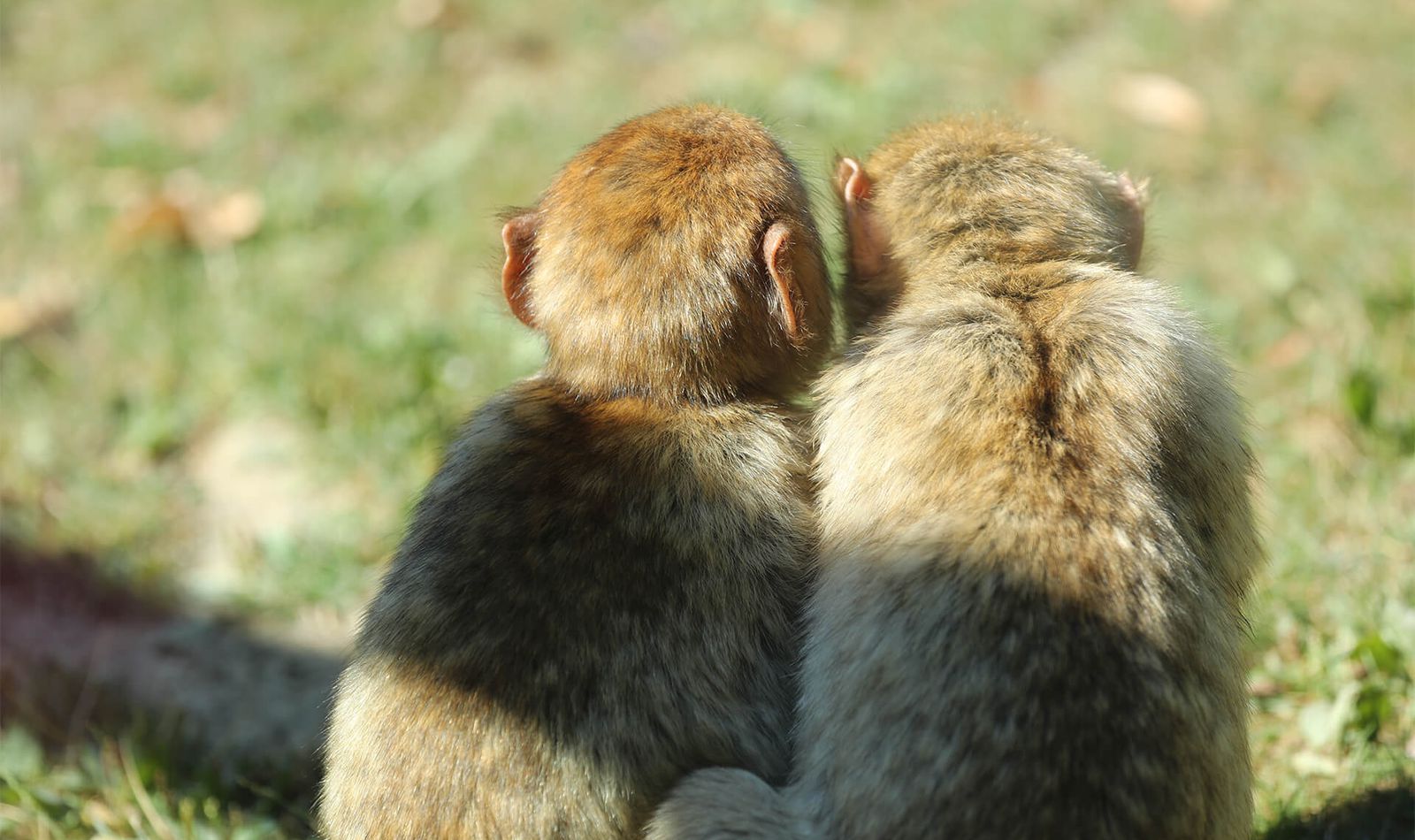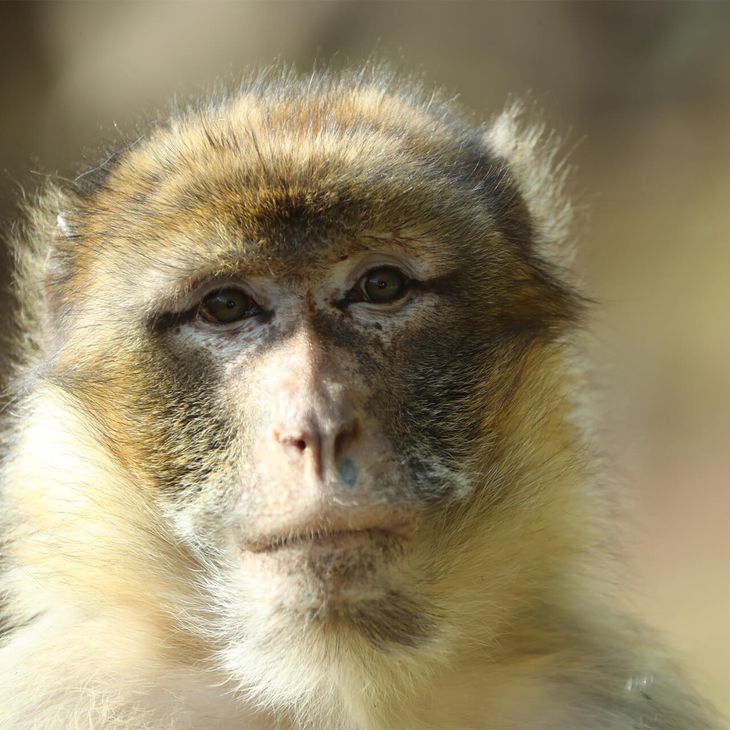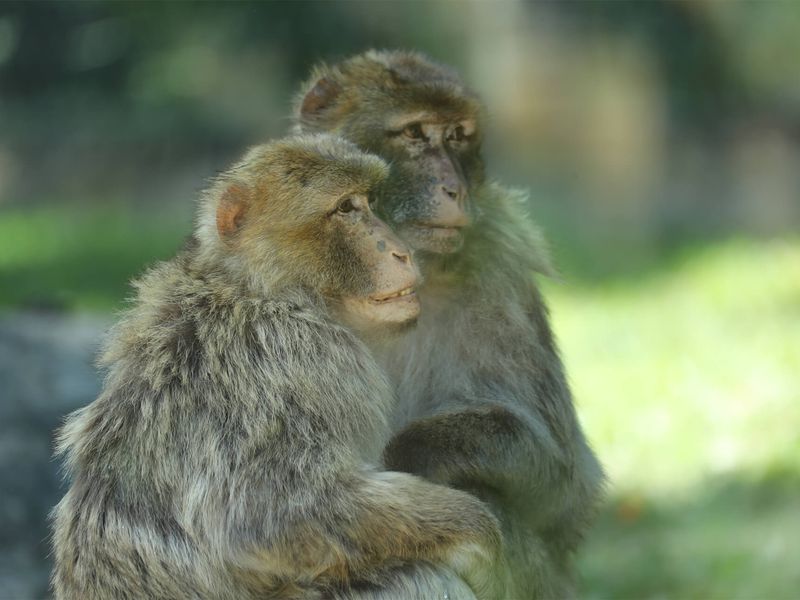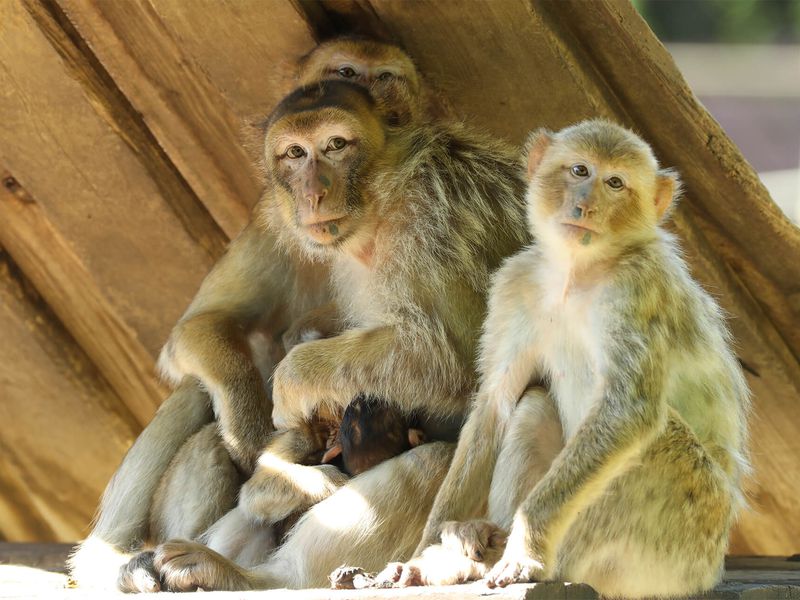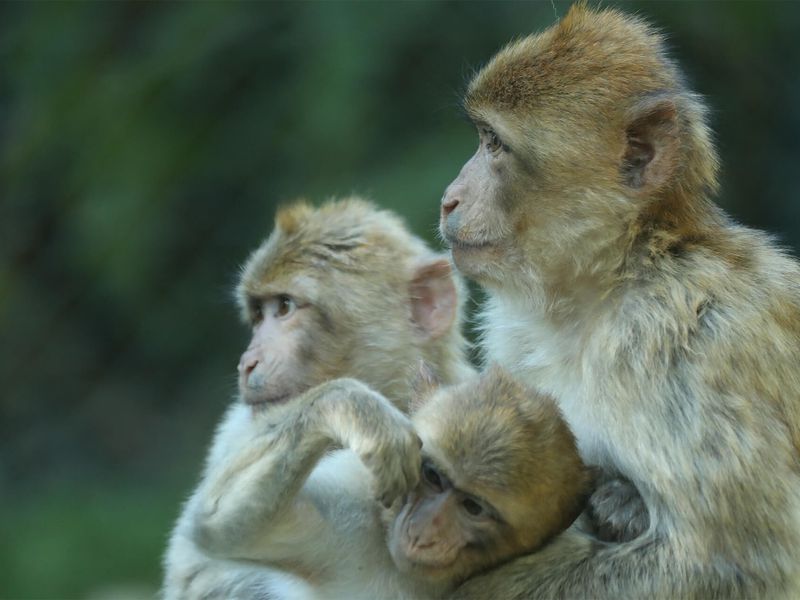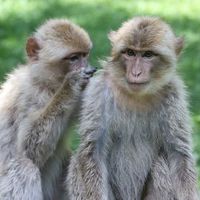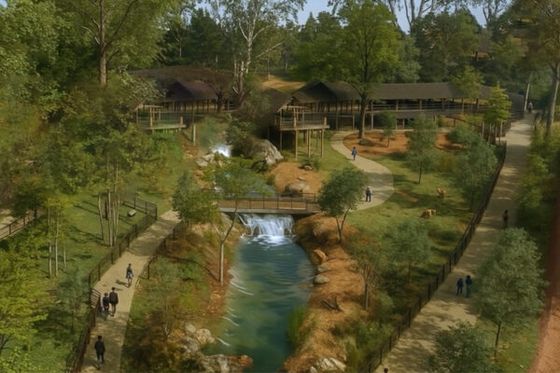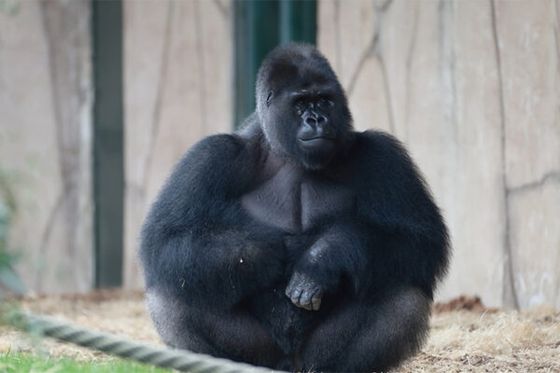« The day the macaques leave Gibraltar is the day the British lose the territory. »
Strict organisation
But chaotic relationships
For the Barbary macaque, community living is extremely important. The macaque lives in a group, made up of 20 to 30 individuals, with a complex social organisation. These groups are made up of many males and females, each of which have a clear hierarchical position that is defined by birth. Although these ranks are relatively stable, each individual will protect its social status by screaming, chasing, or less frequently through physical attacks. Despite these facets of their relationships, which may seem chaotic to us, Barbary macaques are relatively peaceful compared to other species of primates.
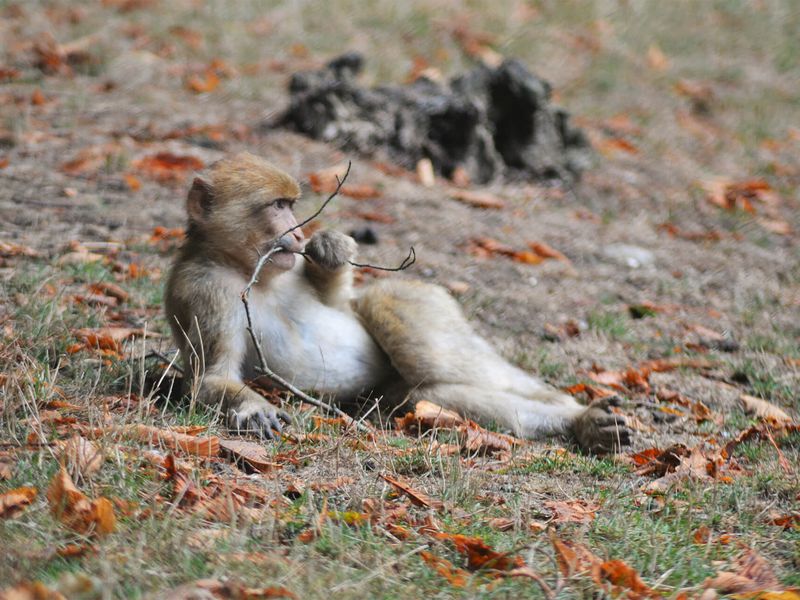
Beauval Nature is helping save the barbary macaque
Classified as “Endangered” by the IUCN, the barbary macaque is threatened by loss of habitat due to intensive logging and land clearing. Further to this, the barbary macaque also suffers from illegal trade and persecution by local populations.
The Barbary Macaque Awareness & Conservation association is supported by the Beauval Nature association and studies the relationship between local populations and barbary macaques. Shepherds are now tasked with locating populations of barbary macaques and monitoring them. Several other awareness-raising programmes have been put in place, especially in schools.
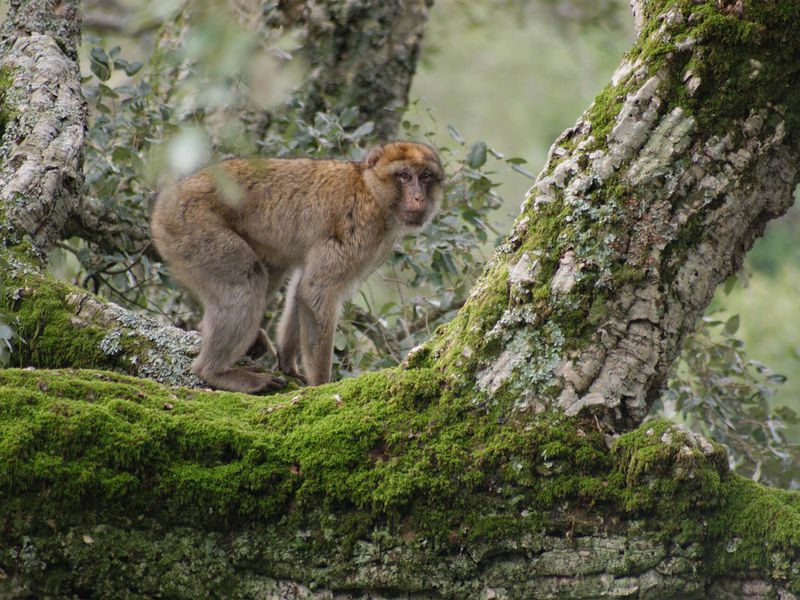
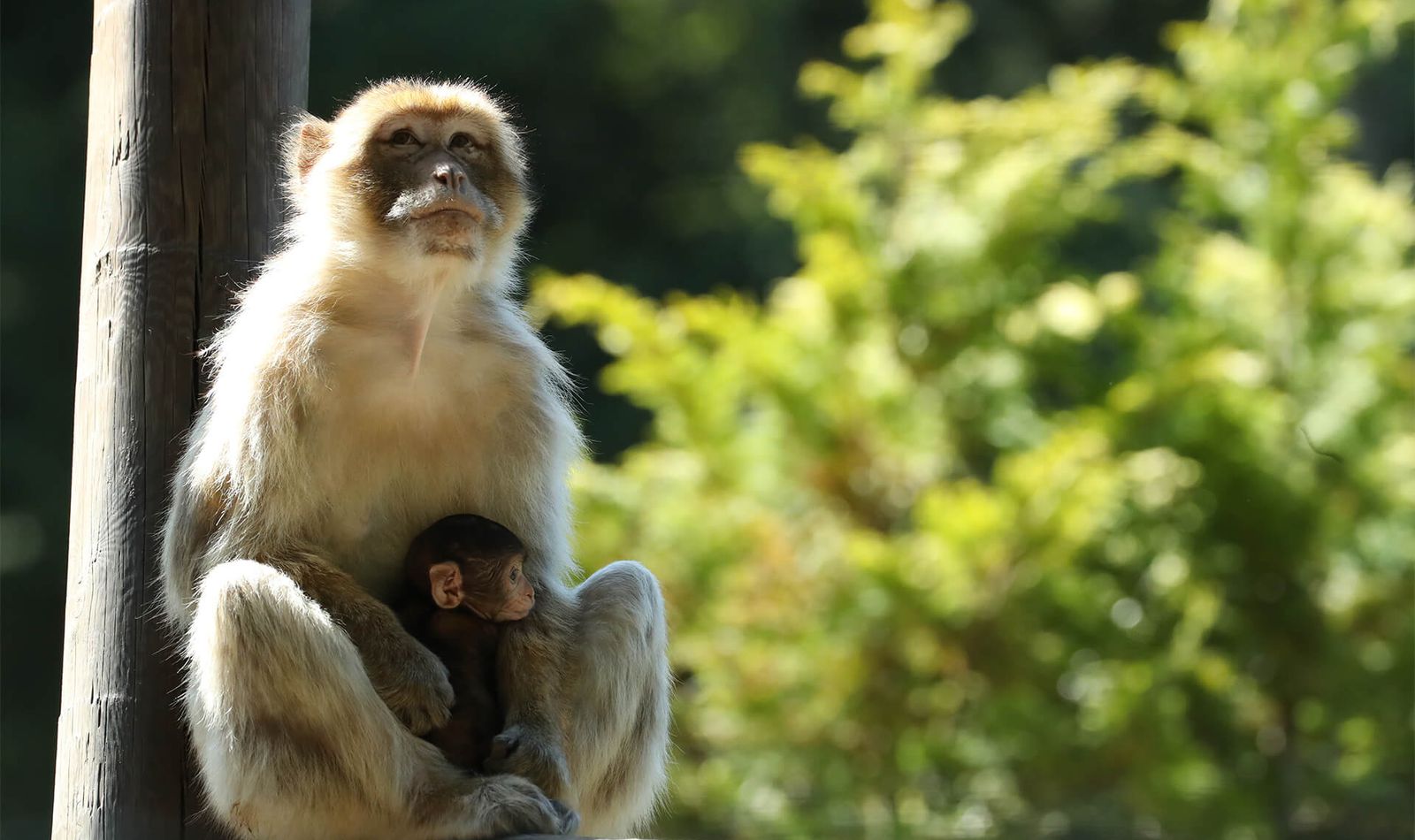

Sponsor our Barbary macaques
Establish a strong bond with your favourite animal whilst supporting conservation programmes through the Beauval Nature association!
Critically endangered
Learn more about the species
-
Frugivore, OmnivoreDiet
-
5 to 6 monthsGestation period
-
1 to 2 youngLitter size
-
Forests, MountainsHabitat
Something to eat all year round
Seduction is the be-all and end-all
A strange military role

Take full advantage of the experience thanks to our mobile application!
Find out more
